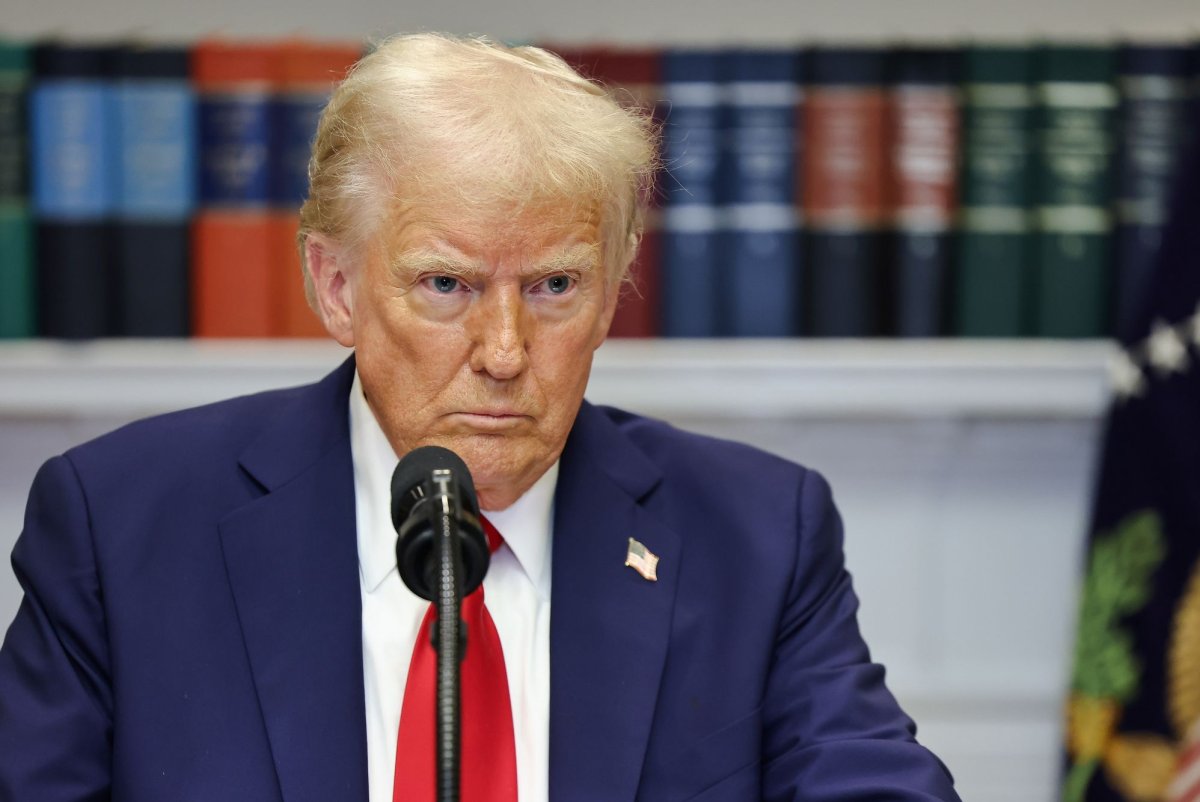
President Donald Trump spent the first days of his return to the White House sharing the spoils of victory with his most loyal followers and offering up red meat culture war wins with the stroke of his pen.
But even as the new president celebrated the moment in the friendly confines of an Oval Office interview with Fox News host Sean Hannity on Wednesday, immense political and economic challenges loomed large.
“They’re all solvable,” Trump said in the interview. “With time, effort, money, unfortunately; but they’re all solvable problems.”
For Trump, the hard work starts in earnest on Thursday. In the morning, he’ll appear virtually at the World Economic Forum in Davos, where a cadre of corporate executives are expected to quiz him on his energy policies and tariff plans he’s threatened but so far held off on actually implementing.
Trump will almost certainly be warmly received by much of the Davos set — some of the richest and most powerful executives across corporate America, including former critics, have spent recent weeks cozying up to him and his new administration.
Still, markets are watching closely to see how serious Trump is about both deregulation and his threatened tariff regime. Wall Street’s favorite fear gauge has remained subdued since Monday, a sign investors are in wait-and-see rather than fight-or-flight mode.
The first few days of Trump’s second administration have “given hopes for a more structured approach to tariffs than what was feared,” said Charu Chanana, chief investment strategist at Saxo Markets said.
“One needs to remember that Trump can prove to be a tough negotiator and US exceptionalism just gives him more room to get what he wants, which is unlikely to be a positive theme for the affected trade partners,” she said, adding that it may be better to “be on the sidelines for now and careful about adding more risk unless clarity emerges.”
Trump has already seen how his broad network of corporate allies might not be as unified as he wants.
On Tuesday, billionaire Elon Musk – who was granted a key administration position to root out government waste after spending millions to help Trump’s electoral bid – tweeted a broadside against rival tech executives who had appeared at the White House at Trump’s invitation to promote a new artificial intelligence infrastructure initiative.
OpenAI CEO Sam Altman, one of those in attendance and who Trump hailed as “by far the leading expert” on AI, denied Musk’s suggestions that the pledged spending would not materialize. Altman fired back, suggested Musk was struggling to separate his corporate interests from the nation’s.
But the infighting amid tech executives pales in comparison to the brewing battles on Capitol Hill.
Later this week week, Trump is planning a series of events to bracket the coming battles over government funding, disaster relief and the extension and expansion of his signature tax cuts. Each carries their own unique challenges in a bitterly divided Washington, and Republicans lack unity on the best path forward.
The president is expected to visit Asheville, North Carolina and Los Angeles on Friday to survey flood and wildfire damage as lawmakers weigh emergency aid for what is likely to be the most expensive fire damage in US history.
Already, lawmakers are split on whether they should tie conditions to the emergency aid. To further complicate matters, Trump on Wednesday suggested bypassing the Federal Emergency Management Agency altogether, undercutting a system built over decades of bipartisan cooperation to put state and local governments in charge of emergency responses.
Trump also said he wanted assistance to California to be conditioned on changing the state’s water flows. Trump has long bemoaned environmental regulations designed to help fish species. While those rules have little impact on water availability in Los Angeles, they rankle Republican-voting farmers in California’s Central Valley.
“I don’t think we should give California anything until they let water flow down into their system,” Trump said during the Fox News interview.
That demand differs from one pushed by some House Republicans, who have instead floated the idea of tying the aid to another Trump priority: extending the debt ceiling.
That effort could come into play Saturday when the president is expected to travel to Nevada, where he said he would thank the state “for the vote because we won Nevada overwhelmingly.”
Divided Majority
Trump was able to curry favor with the state – and particularly hospitality workers – with his promises to remove taxes on tipped wages. But doing so could to add billions to the deficit, and risks becoming a sticking point in already tenuous discussions to extend his signature tax credits.
Trump has already held meetings with congressional Republicans at the White House this week about a possible legislative strategy, but lawmakers in the Senate and House remain divided on whether to pursue a single sweeping legislative package or multiple bills to further Trump’s agenda. House Republicans, who’ve pushed for a single bill, are slated to travel to Trump’s Doral resort in Miami next week to further consult on a path forward.
Trump told Hannity he likes the concept of putting his tax plan, energy, immigration and other policy priorities into “one big, beautiful bill,” however he’s open to other ideas, including splitting the agenda into two parts as the Senate wants.
“I don’t care as long as we get to the final answer,” Trump said.


